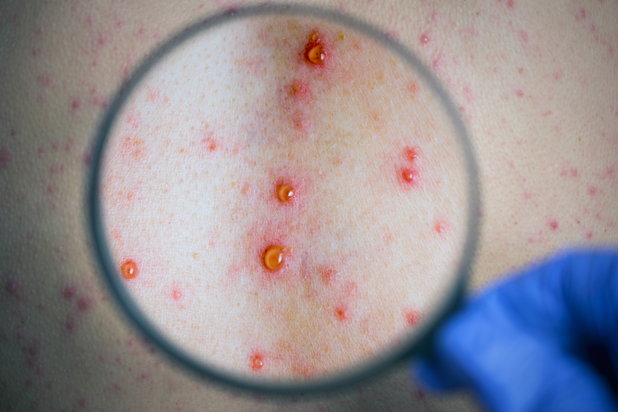One of the most dangerous risks of intravenous drug use is the spread of sexually transmitted diseases (STDs). Syphilis—a highly infectious but common disease that affects the genitals, lips, anus or mouth—is one STD that has been increasingly linked to intravenous drug use.
According to a CDC study done between 2013 and 2017, the rate of syphilis increased by 72.7 percent nationally and 155.6 percent among women. This development coincides with a spike in intravenous drug use—most notably methamphetamine (meth) and heroin abuse—according to studies.
Public Health Crisis
This recent trend is concerning, as widespread drug abuse and transmission of syphilis can create a health crisis. Other risky behaviors—like being a sex worker or frequently having unprotected sex with multiple partners—up the chances of spreading disease.
The study concluded that because of the stigma that surrounds these risky behaviors, those studied may have been too reluctant to disclose their personal drug use. In turn, this can lead to misclassification and skewed numbers that underestimate the true percentage of people with syphilis who are also drug abusers.
The opioid epidemic continues to remain prevalent. To make matters worse, more and more opioid addicts are turning to meth as a cheaper substitute.
Syphilis on the Rise
The increase in the number of women who have contracted syphilis is especially concerning, as risky sexual behavior increases a woman’s odds of contracting the disease and passing it on to their children. There is an 80 percent chance that women who have syphilis—be it untreated or undiagnosed—will pass it on to their babies. Although syphilis can be cured by using antibiotics, it is deadly for children as it causes a condition called congenital syphilis (CS). CS may cause an enlarged liver, deformities, and brain or nerve problems, among other health issues. Furthermore, up to 40 percent of babies born with CS may be stillborn or die from complications as a newborn.
Deaths and congenital syphilis are highly preventable, however. If the disease is caught during a prenatal visit, the mother can be treated before the disease is passed along. The problem is that many pregnant women who are also using may be afraid to see their doctors for fear that they will be subject to a drug test that leads to losing custody of their children.
Most states require women to be tested during their first prenatal visit. The CDC also recommends screening at first visit for all women, as well as those in their early third trimester.
Stigma of Addiction
With the rise in syphilis, those in recovery may face negative backlash from others who may assume that they must also be infected with an STD. Opioid and meth users are especially susceptible to the assumption that, with the rise of syphilis, they are at a higher risk and thus unsafe to be around.
Those who suffer from STDs may have a harder time finding a partner or may be shunned by others for fear that the infection is "catching". Likewise, those who have a substance abuse disorder but do not have syphilis may also be ostracized by potential partners or even be judged and treated differently by some in the recovery community.
Raising Awareness
The key to addressing the upswing in syphilis cases caused by intravenous drug use is to raise awareness. Medical centers and practitioners treating addicts or recovering addicts should approach patients and encourage them to get testing. Open communication between sexual partners and creating a dialogue is also helpful for recovering addicts who may feel they are being unfairly judged.
It is essential that states and counties adopt programs that help those seeking treatment for both substance abuse and STDs. State and local health departments should also monitor the connection of syphilis and intravenous drug use so that steps can be taken to help users get access to the treatment they need.
Ultimately, prevention and treatment are crucial to stopping syphilis in its tracks and preventing the disease from spreading.
|
If you or someone you know is seeking help from addiction, please visit our directory of treatment centers or call 800-891-8171 to speak to a treatment specialist. |








